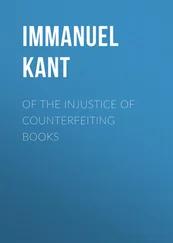Book II.
Of the Dialectical Procedure of Pure Reason.
Table of Contents
It may be said that the object of a merely transcendental idea is something of which we have no conception, although the idea may be a necessary product of reason according to its original laws. For, in fact, a conception of an object that is adequate to the idea given by reason, is impossible. For such an object must be capable of being presented and intuited in a possible experience. But we should express our meaning better, and with less risk of being misunderstood, if we said that we can have no knowledge of an object, which perfectly corresponds to an idea, although we may possess a problematical conception thereof.
Now the transcendental (subjective) reality at least of the pure conceptions of reason rests upon the fact that we are led to such ideas by a necessary procedure of reason. There must therefore be syllogisms which contain no empirical premisses, and by means of which we conclude from something that we do know, to something of which we do not even possess a conception, to which we, nevertheless, by an unavoidable illusion, ascribe objective reality. Such arguments are, as regards their result, rather to be termed sophisms than syllogisms, although indeed, as regards their origin, they are very well entitled to the latter name, inasmuch as they are not fictions or accidental products of reason, but are necessitated by its very nature. They are sophisms, not of men, but of pure reason herself, from which the wisest cannot free himself. After long labour he may be able to guard against the error, but he can never be thoroughly rid of the illusion which continually mocks and misleads him.
Of these dialectical arguments there are three kinds, corresponding to the number of the ideas which their conclusions present. In the argument or syllogism of the first class, I conclude, from the transcendental conception of the subject contains no manifold, the absolute unity of the subject itself, of which I cannot in this manner attain to a conception. This dialectical argument I shall call the transcendental paralogism. The second class of sophistical arguments is occupied with the transcendental conception of the absolute totality of the series of conditions for a given phenomenon, and I conclude, from the fact that I have always a self-contradictory conception of the unconditioned synthetical unity of the series upon one side, the truth of the opposite unity, of which I have nevertheless no conception. The condition of reason in these dialectical arguments, I shall term the antinomy of pure reason. Finally, according to the third kind of sophistical argument, I conclude, from the totality of the conditions of thinking objects in general, in so far as they can be given, the absolute synthetical unity of all conditions of the possibility of things in general; that is, from things which I do not know in their mere transcendental conception, I conclude a being of all beings which I know still less by means of a transcendental conception, and of whose unconditioned necessity I can form no conception whatever. This dialectical argument I shall call the ideal of pure reason.
Chapter I. Of the Paralogisms of Pure Reason.
Table of Contents
The logical paralogism consists in the falsity of an argument in respect of its form, be the content what it may. But a transcendental paralogism has a transcendental foundation, and concludes falsely, while the form is correct and unexceptionable. In this manner the paralogism has its foundation in the nature of human reason, and is the parent of an unavoidable, though not insoluble, mental illusion.
We now come to a conception which was not inserted in the general list of transcendental conceptions and yet must be reckoned with them, but at the same time without in the least altering, or indicating a deficiency in that table. This is the conception, or, if the term is preferred, the judgement, “I think.” But it is readily perceived that this thought is as it were the vehicle of all conceptions in general, and consequently of transcendental conceptions also, and that it is therefore regarded as a transcendental conception, although it can have no peculiar claim to be so ranked, inasmuch as its only use is to indicate that all thought is accompanied by consciousness. At the same time, pure as this conception is from empirical content (impressions of the senses), it enables us to distinguish two different kinds of objects. “I,” as thinking, am an object of the internal sense, and am called soul. That which is an object of the external senses is called body. Thus the expression, “I,” as a thinking being, designates the object-matter of psychology, which may be called “the rational doctrine of the soul,” inasmuch as in this science I desire to know nothing of the soul but what, independently of all experience (which determines me in concreto), may be concluded from this conception “I,” in so far as it appears in all thought.
Now, the rational doctrine of the soul is really an undertaking of this kind. For if the smallest empirical element of thought, if any particular perception of my internal state, were to be introduced among the grounds of cognition of this science, it would not be a rational, but an empirical doctrine of the soul. We have thus before us a pretended science, raised upon the single proposition, “I think,” whose foundation or want of foundation we may very properly, and agreeably with the nature of a transcendental philosophy, here examine. It ought not to be objected that in this proposition, which expresses the perception of one’s self, an internal experience is asserted, and that consequently the rational doctrine of the soul which is founded upon it, is not pure, but partly founded upon an empirical principle. For this internal perception is nothing more than the mere apperception, “I think,” which in fact renders all transcendental conceptions possible, in which we say, “I think substance, cause, etc.” For internal experience in general and its possibility, or perception in general, and its relation to other perceptions, unless some particular distinction or determination thereof is empirically given, cannot be regarded as empirical cognition, but as cognition of the empirical, and belongs to the investigation of the possibility of every experience, which is certainly transcendental. The smallest object of experience (for example, only pleasure or pain), that should be included in the general representation of self-consciousness, would immediately change the rational into an empirical psychology.
“I think” is therefore the only text of rational psychology, from which it must develop its whole system. It is manifest that this thought, when applied to an object (myself), can contain nothing but transcendental predicates thereof; because the least empirical predicate would destroy the purity of the science and its independence of all experience.
But we shall have to follow here the guidance of the categories — only, as in the present case a thing, “I,” as thinking being, is at first given, we shall — not indeed change the order of the categories as it stands in the table — but begin at the category of substance, by which at the a thing a thing is represented and proceeds backwards through the series. The topic of the rational doctrine of the soul, from which everything else it may contain must be deduced, is accordingly as follows:
| 1 The Soul is SUBSTANCE |
2 As regards its quality it is SIMPLE |
| 3 As regards the different times in which it exists, it is numerically identical, that is UNITY, not Plurality. |
| 4 It is in relation to possible objects in space 42 |
From these elements originate all the conceptions of pure psychology, by combination alone, without the aid of any other principle. This substance, merely as an object of the internal sense, gives the conception of Immateriality; as simple substance, that of Incorruptibility; its identity, as intellectual substance, gives the conception of Personality; all these three together, Spirituality. Its relation to objects in space gives us the conception of connection (commercium) with bodies. Thus it represents thinking substance as the principle of life in matter, that is, as a soul (anima), and as the ground of Animality; and this, limited and determined by the conception of spirituality, gives us that of Immortality.
Читать дальше












